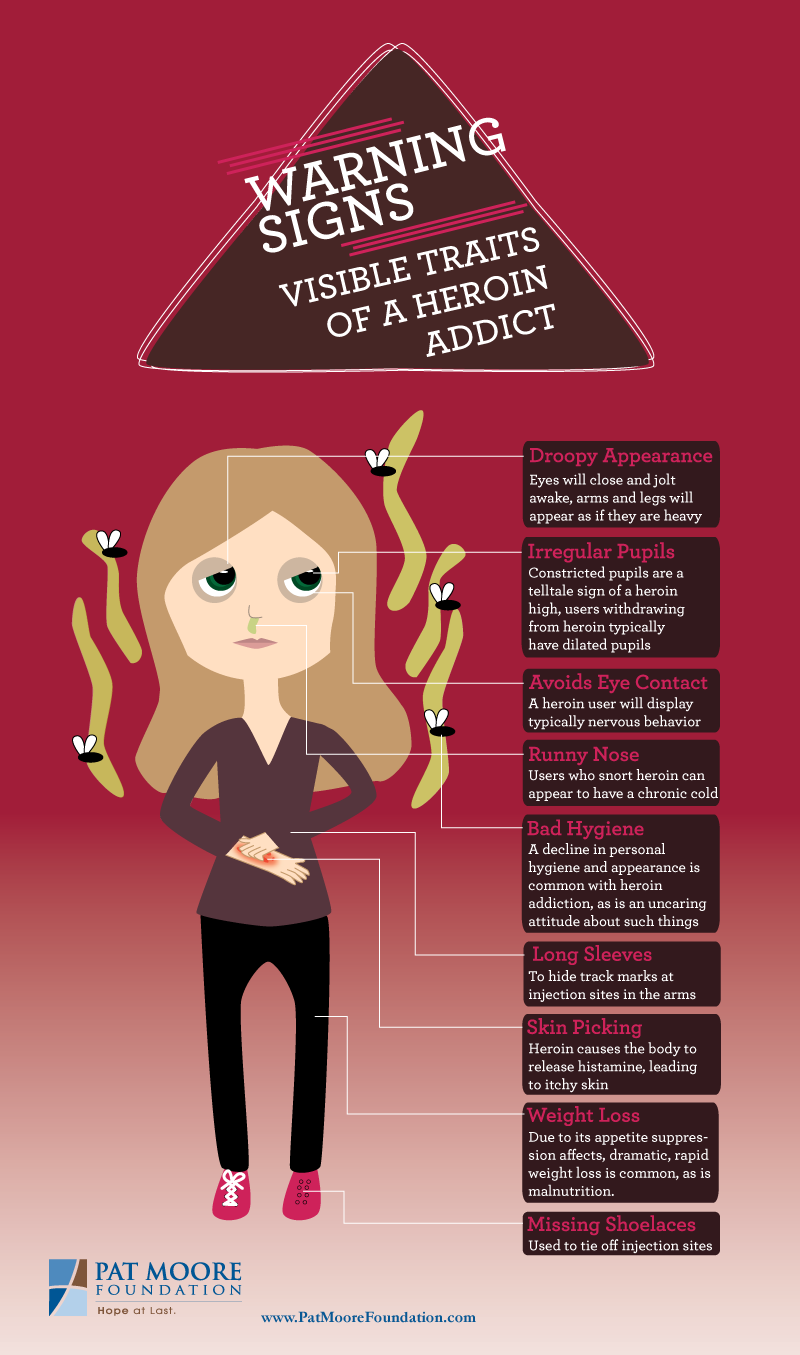Submitted by Guest on October 16, 2014 – 11:26pm

Watching a loved one struggle with an addiction can be incredibly difficult. Many times you feel conflicted because you want to help him, yet he may refuse help of any kind. Your heart breaks for the pain he may be going through and you worry about his well-being. All of this is quite normal for those in your shoes.
You may have a loved one who you think is struggling with a heroin addiction and the truth is that is scares you greatly. After all, heroin is a drug that can cause a person to overdose and die. Perhaps you don’t know a lot about heroin, but you do notice that your loved one just isn’t who he used to be. His emotions and behavior are different than they used to be. Sometimes he’s way up high, happy as can be, and other times he is so down he can barely get out of bed.
What is heroin?
Heroin is a drug that is illegal in the United States, yet it is quite commonly used and abused in a great deal of areas. Heroin is highly addictive and once a person has formed a habit of taking it, the process of quitting is usually very difficult. Heroin comes from the opiate plant and induces a state of euphoria and relaxation upon taking it. Once taken, it blocks the brain’s capacity to perceive pain and puts its user in a high state that makes them feel incredible.
How can I tell if my loved one is addicted to heroin?
There are common signs of heroin abuse, as the addiction is oftentimes tough to hide. Your loved one may be able to hide it for a while, but sooner or later there will be enough changes in his life that others will notice. There are signs that are visible both during and after consumption of heroin. To know whether a friend, a family member, or a co-worker is a victim of heroin addiction, you can be on the lookout as to whether they have any of the following in their possession:
Material Signs
- Presence of syringes or needles in their rooms that have not been used for other medical purposes.
- Presence of burned silver spoons in their bedrooms.
- Gum wrappers and aluminum foils with notable burn marks.
- Missing shoelaces. Many heroin addicts use shoe laces as some form of a tie off for injection sites.
- Presence of small plastic bags that contain a fine white powdery residue.
- Presence of strange water pipes or other types of small pipes.
Behavioral Signs
- Lying or other forms of deceptive behaviors.
- The person does not maintain eye contact and at times and their field of vision seems distant.
- Unusual increase in time spent for sleeping.
- Increase in garbled, incoherent or slurred speech.
- Sudden and alarming worsening of school or work performance, which may include expulsion or loss of jobs.
- Decreased levels of attention to their physical appearance, outlook, and hygiene.
- Loss of self-drive, apathy, and motivation toward future goals.
- Withdrawal from family members and friends.
- Making new friends with no natural tie and spends quite a lot of time with them.
- Complete lack of interest towards favorite sports and hobbies.
- Repeated instances of borrowing money from loved ones or stealing from them and to some extent, unexplained loss of valuables. This is done with a motive of getting money to buy drugs.
- Strange and unusual hostile behaviors toward friends and loved ones. This may include putting blame on them for broken commitments or for withdrawal.
- Regular and common comments which to an extent indicate a decline in self-esteem and worsening body image.
- Wearing loose clothes such as long sleeves or long pants even in very hot weather conditions in order to conceal needle marks.
The above signs are a clear indication that all is not well. When you observe such signs in a loved one, you can have a serious discussion with them letting them know that you are concerned for their safety. Go ahead and refer them to a drug rehab or substance abuse counselor for a guidance and counseling. If they are ready to try to stop abusing heroin, they will reach out for help, but sometimes addicts just are not ready to quit. In such instances, you are forced to love them unconditionally and do your best to keep encouraging them to get some help. If you are having a difficult time, there is a support group called NarAnon to help you contend with your loved ones addiction in positive ways.
Image: Flickr
 Created byPat Moore Foundation
Created byPat Moore Foundation
Post new comment